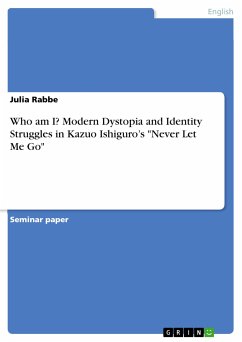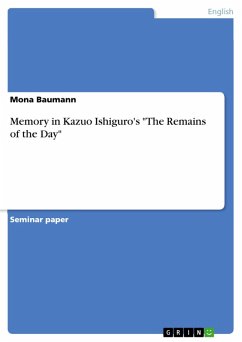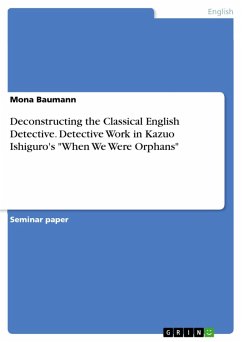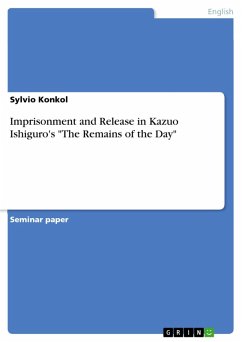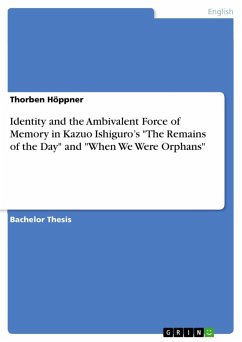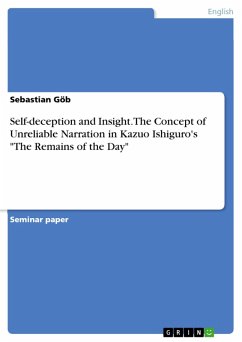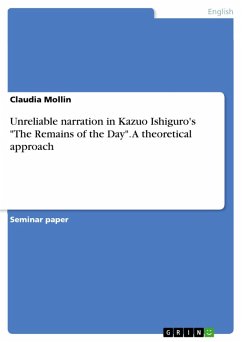Seminar paper from the year 2018 in the subject English Language and Literature Studies - Literature, grade: 1,7, University of Duisburg-Essen, language: English, abstract: Who am I? This is a question we frequently ask ourselves, which is not easy to answer. Human beings naturally try to answer the identity question and it is one of the essential processes of growing up. But if we imagine ourselves living in a world in which one's whole life is predestined and it is impossible to escape from this destiny, it seems impossible to answer such a question. The dystopian novel "Never Let Me Go" by Kazuo Ishiguro is set at a boarding school in England at the end of the twentieth century. The protagonists in the novel, who are growing up at the boarding school Hailsham, face the above-described problem. They are brought up healthy and kept away from every danger possible, to live the life they are supposed to live. They finish school, move in groups to farms where they have to work, they become carers temporarily, until they end up becoming donors of their vital organs. Around the time they have done their third or fourth donation, their short life will be completed. This leads to a struggle of finding identity and to the question, what identity really is. In this term paper, the question of how the characters deal with the predestination of their lives will be answered. It will be discussed, in which ways they try to build up an identity, even though they face some problems. The central thesis, therefore, is that the social groups the protagonists live in and identify themselves with, make an important contribution to the formation of their identity and the process of finding belonging.
Dieser Download kann aus rechtlichen Gründen nur mit Rechnungsadresse in A, B, BG, CY, CZ, D, DK, EW, E, FIN, F, GR, HR, H, IRL, I, LT, L, LR, M, NL, PL, P, R, S, SLO, SK ausgeliefert werden.

